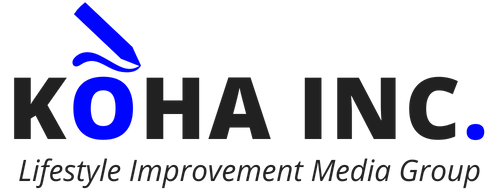How To Show Up on Google: 4 Strategies That Work!
Your marketing strategy could either be a huge advantage or disadvantage. It could enable you access to your ideal clients or it can leave you hearing crickets.
No one wants a business with no customers because no customers means no sales and no sales means no money.
 Nowadays, there’s a growing trend where more and more people are buying smartphones, more people have personal computers (even kids), and as a result of the growing access to technology, more people are using the search engines for access to information and to make buying decisions.
Nowadays, there’s a growing trend where more and more people are buying smartphones, more people have personal computers (even kids), and as a result of the growing access to technology, more people are using the search engines for access to information and to make buying decisions.
In fact, 93% of online experiences begin with the search engines which translates to over 1 trillion searches per year!
Those who know how to show up on Google are seeing huge advantages, much more traffic in comparison to their competitors, and a seemingly stable flow of traffic, but how can you have this marketing advantage? That’s what this article will be about.
The Reality of SEO
If you’re just starting out online, you may have:
- A new site
- Maybe an inconsistent publishing cycle
- Not many backlinks
- Low domain authority
- and, quite a learning curve to learn how to change the trajectory of your online presence
Accordingly, it’s unlikely that you’ll get organic listings for major industry keywords especially if your industry is saturated with marketers. If you type in some of your top industry keywords, it’s likely you may see something like this…

1. Paid Ads
We’ll talk about these in a little bit…
2. Local Map Listings
Hold tight, we’ll discuss local map listings later also…
3. Organic Listings
As I mentioned, the organic listings are the ones that are a challenge to rank for because of the domain authority of your competitors. As you can see in the results above, major competitors like Zillow, Yelp, and Realtor.com populated in the organic searches when I typed in “San Antonio Realtor”.
They have some advantages like:
- Age
- Loads of site content with SEO
- Consistent publishing for a long stretch of time
- Lots of content is published on a frequent basis
- Thousands of backlinks where other sites are using them as references
- and other measures that would take time (potentially years) and commitment to surpass
Do you see what I mean? Sites that have been around for awhile will dominate the organic search results and rankings, so new sites (like yours) will have to take a different strategy if you want to show up on Google. Here’s a few of those methods…
1. Dominate Long Tail Keywords
High authority sites can rank for one word or two word keywords like “Real Estate” or “SEO”, but new sites usually can’t. I takes years to get that type of domain authority, but with some keyword research, you may be able to find a keyword with high search volume that may be a tad longer–like a four to seven word variation like this…

You see “how to buy real estate”? In the “Avg” column, you can see that the average number of searches is 331 per month and the estimated traffic you’d get if you ranked for that keyword would be 57 visitors per month.
While it’s not “real estate”, there’s still traffic searching the longer search term, and you could benefit from that search traffic.
2. Pay to Play
I told you we’d talk about “paid ads” later, right? Well, now’s later. In most searches, you’ll see “paid ads” first. Here’s an example…
Paid ads grant you the ability to rank in the search engines without waiting on Google or other search engines to index and categorize the content you’ve created (which usually takes 6 months or more). With the paid advertising system, you’re basically participating in a virtual auction where you select keywords and the highest bidder with the most relevant ad gets served to the end user.
You can bid on keywords on Google Adwords or Bing Advertising, or you can pay based on psychographics and interests on social media. Paid advertising can equate to instant traffic and potentially sales conversion.
 3. Out-Publish Your Competition
3. Out-Publish Your Competition
Another alternative to paid ads is aggressive publishing. I wrote a post called “How Often Should You Post on a Blog?”, and in it, I share all the statistics that show which publishing frequencies result in the most traffic and sales. To make a long story short, the normal equation usually looks like this…
More content published = More traffic = More sales
Of course, the content has to add value to the readers, but the more frequently you can add valuable content, the better. Most people are publishing content online once per week, and in your niche, they may publish even less.
If you can create more valuable content than your competitors, it’s likely you’ll get more leads and more sales.
4. Guest Post, Get Reviewed, or Featured on Relevant Blogs
For local businesses, there are several sites you’ll want your NAP (name, address, and phone number) listed on like:
- Yelp
- Google Local
- Bing Local
- Foursquare
- Angie’s List
- and others…
For local businesses, these NAP listings are called “citations”. Added onto NAP listings, you’ll also want to show Google you’re an authority in your niche, which Google calculates based on backlinks. You can acquire backlinks organically by creating killer content that people want to reference, or you can get backlinks by guest posting, interviewing, or being featured.
For example, if you are a local real estate agent, you could reach out to a site like realtor.com and offer to contribute an article that would be relevant to their audience. Usually, when you guest post on a blog, the site owner will link back to your site, which could get you traffic back to your site.
If you’re new to guest posting, here’s a video on guest posting that can help you out:
Final Words on How To Show Up On Google
The goal of this article was to show you how to show up on Google. With all of the traffic that comes from Google, assuredly, showing up on Google for ideal keywords can be great for any business.
If you have questions or concerns about this, don’t hesitate to leave them in the comments section. I’d love to help you out!
If you liked what you saw here and you’d like a free consultation to discuss how your business can show up on Google, call us to schedule at (210)564-7749 or CLICK HERE AND SUBMIT YOUR INFORMATION TO US!
Now, it’s Your Turn…
Have you ranked on Google before? What’s your experience with being listed on Google? Leave your comments, questions, and feedback below.



Hi there Tiffany,
Thanks for this great lesson on how to actually get our websites showing up on google!. I have trying for weeks and months to get my site on page one but I now know why I am not getting there – I am targeting keywords that are a little too competitive for a new site. I do believe though, given time a few of my article could land there as my site ages and matures.
Just for the record, I post daily!
Wow Derek! Kudos for the aggressive publishing schedule. You can definitely still get to page one, but with more competitive keywords, it takes more time to build the authority.